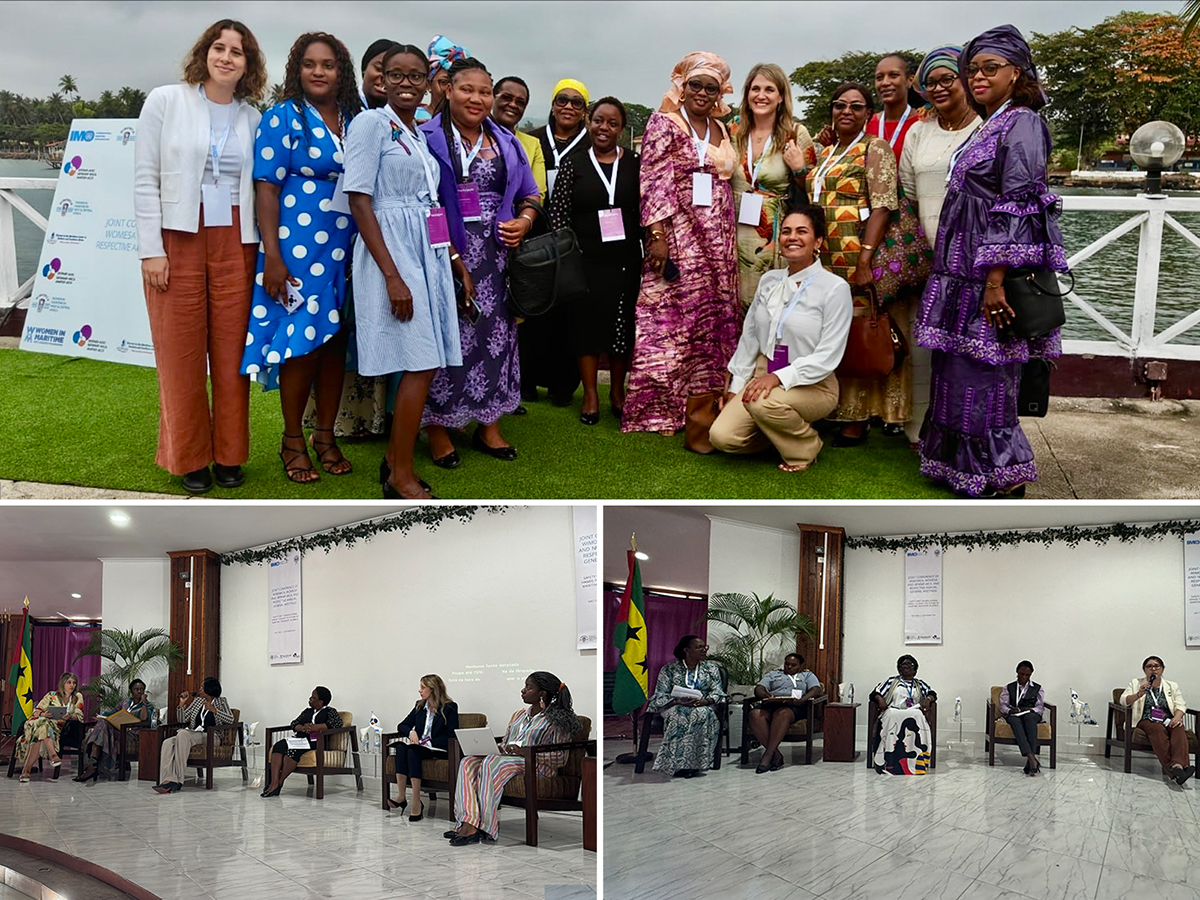Female maritime professionals from across Africa gathered in Sao Tome and Principe to tackle the issue of safety “through a woman’s lens”, and how to foster a safer, more secure maritime environment.
The conference (2-3 September) brought together three key regional networks: the Association of Women in Maritime in Eastern and Southern Africa (WOMESA), the Network of Professional Women in the Maritime and Port Sectors for West and Central Africa (NPWMP-WCA) and the Women in Maritime of West and Central Africa (WIMOWCA), under the theme “Safety first: Women joining hands to shape the future of Maritime in Africa”. This was followed by each association’s Annual General Meeting (AGM) on 4 September.
The conference and AGMs were sponsored by IMO and hosted by the Government of Sao Tome and Principe, with participants from up to 40 African countries.
During the opening ceremony, IMO Principal Programme Assistant and lead for the Women in Maritime programme, Mariana Noceti stressed the importance of building the technical capacity of African women professionals in the sector: “By empowering women with the skills and knowledge needed to excel in maritime roles, we can ensure that safety standards are upheld and continually improved.”
The Conference addressed safety concerns from the perspective of African women, as well as the role of women in ensuring that safety standards are upheld within the industry.
Sessions explored opportunities for women to contribute to safety initiatives and decision-making processes, and covered pressing issues such as strengthening maritime security, technological innovation, and maritime decarbonization.
A presentation by IMO’s Maritime Security Section advocated an inclusive “whole of Government” approach to tackling maritime security threats, drawing various key stakeholders together to align actions and share information.
The three regional Women in Maritime Associations (WIMAs) in Africa are part of a global network that spans more than 150 countries and territories in Africa, Asia, the Arab States, the Caribbean, Latin America and the Pacific. Facilitated by IMO, these professional networks work to improve gender balance in the shipping industry.
